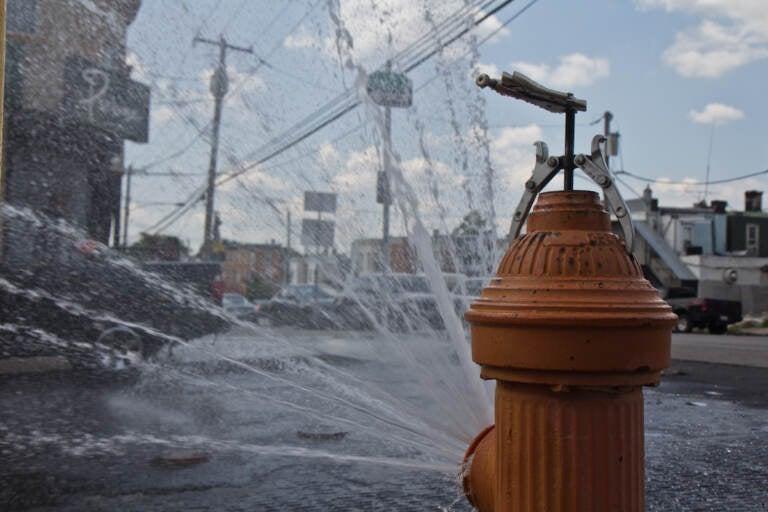Philadelphia Faces Intense Heat Wave and Rising Air Pollution: Safety Measures and Community Response
Unrelenting Heat Wave Grips Philadelphia, Sparking Urgent Warnings
The Philadelphia metropolitan area is currently experiencing an intense heat wave marked by soaring daytime temperatures often exceeding 100¬įF, combined with high humidity levels that persist into the night. Meteorological agencies have issued severe heat advisories, urging residents‚ÄĒespecially seniors, young children, and those with chronic illnesses‚ÄĒto take protective actions. Officials stress the importance of maintaining hydration, limiting outdoor exertion during the hottest hours, and checking in on neighbors who may be vulnerable to heat-related illnesses. To combat the oppressive conditions, numerous cooling centers have been established throughout the city, offering air-conditioned environments and hydration stations.
Alongside the heat warnings, elevated ozone concentrations have triggered air quality alerts, which can worsen respiratory conditions. Public health authorities recommend the following precautions to reduce exposure and health risks:
- Restrict outdoor physical activity during peak ozone periods, typically midday to early afternoon.
- Utilize air-conditioned spaces or air purifiers to minimize heat and pollutant exposure.
- Avoid activities that contribute to pollution, such as outdoor burning or operating gas-powered tools.
- Stay informed by monitoring local air quality and weather updates regularly.
| Day | Forecasted High (¬įF) | Air Quality Index |
|---|---|---|
| Monday | 98 | 85 (Unhealthy for sensitive groups) |
| Tuesday | 101 | 90 (Unhealthy for sensitive groups) |
| Wednesday | 99 | 80 (Moderate) |
Declining Air Quality Raises Health Concerns for At-Risk Residents
The heat surge in Philadelphia has coincided with a marked deterioration in air quality, as environmental sensors report elevated levels of ozone and fine particulate matter (PM2.5). These pollutants pose heightened dangers to individuals with respiratory or cardiovascular vulnerabilities, as well as children and the elderly. The combination of heat and pollution creates a compounded health threat that requires heightened vigilance.
Health officials advise the following measures to protect sensitive populations during this period of poor air quality:
- Minimize time spent outdoors during peak heat and pollution hours, generally mid-afternoon.
- Maintain adequate hydration and remain in air-conditioned or well-ventilated indoor spaces.
- Watch for symptoms such as persistent coughing, wheezing, chest discomfort, or difficulty breathing, and seek medical care if these worsen.
| Pollutant | Measured Level | Health Effects | Recommended Precautions |
|---|---|---|---|
| Ozone (O‚āÉ) | 85 ppb (Unhealthy for sensitive groups) | Can worsen asthma and other lung conditions | Limit outdoor exertion |
| PM2.5 | 45 ¬Ķg/m¬≥ (Moderate) | May cause respiratory irritation and inflammation | Stay indoors, use air filtration |
City Officials Activate Cooling Centers and Emergency Protocols
In response to the extreme heat and declining air quality, Philadelphia’s municipal government has launched a network of cooling centers across the city. These facilities, housed in libraries, community centers, and recreational venues, provide air-conditioned spaces, hydration stations, and medical assistance to those most at risk. Operating hours have been extended to accommodate residents during peak heat periods, and public transit routes have been modified to improve access to these safe havens.
Emergency services remain on heightened alert, coordinating with hospitals and first responders to swiftly address heat-related emergencies and pollution-induced health issues. The city’s multi-tiered response plan includes:
- Continuous monitoring and public dissemination of temperature and air quality data
- Deployment of mobile health units to neighborhoods with high vulnerability
- Community outreach campaigns to educate residents on heat safety and pollution risks
| Cooling Center | Hours of Operation | Available Services |
|---|---|---|
| South Philadelphia Library | 9 AM ‚Äď 9 PM | Air conditioning, water stations, seating |
| Franklin Recreation Center | 8 AM ‚Äď 10 PM | Cooling rooms, medical staff, hydration |
| North Philly Community Hall | 10 AM ‚Äď 8 PM | Air conditioning, health consultations |
Health Experts Stress Hydration and Reduced Outdoor Exposure
Medical professionals underscore the vital importance of staying well-hydrated during this heat wave, recommending that individuals drink ample water throughout the day to prevent dehydration, which can quickly escalate to heat exhaustion or heat stroke. They caution against consuming beverages high in sugar, caffeine, or alcohol, as these can exacerbate fluid loss. Additional advice includes:
- Consume at least eight glasses of water daily, increasing intake during physical activity or prolonged heat exposure.
- Wear breathable, loose-fitting clothing to facilitate cooling.
- Take regular breaks in shaded or climate-controlled environments when outdoors.
Given the stagnant air conditions contributing to elevated ozone levels, outdoor air quality poses an added health challenge. Vulnerable groups should limit strenuous outdoor activities, especially during peak pollution hours. Cooling centers and community shelters remain open to provide respite during the hottest parts of the day. The following table outlines recommended behaviors based on time of day:
| Time Frame | Recommended Activity | Precautionary Measures |
|---|---|---|
| 10 AM ‚Äď 4 PM | Minimize outdoor exposure | Seek air-conditioned environments |
| 4 PM ‚Äď 7 PM | Engage in outdoor activities if necessary | Stay hydrated and use sun protection |
| After 7 PM | Outdoor activities generally safe | Continue monitoring weather and air quality updates |
Summary: Staying Safe Amid Philadelphia’s Heat and Pollution Crisis
As Philadelphia contends with record-breaking heat and worsening air quality, local authorities and health experts continue to urge residents to adopt safety measures to mitigate health risks. With extreme heat advisories and air pollution alerts in place, maintaining hydration, limiting outdoor exertion, and utilizing cooling centers are essential steps to protect vulnerable populations. Ongoing updates and support services will be provided as the city navigates this challenging summer heat event.


